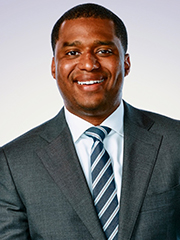
PNC’s Point of View editors asked Justin Sullivan, Certified Financial Planner® and investment market manager, southeast, with PNC Wealth Management® how the average person can start investing. Here’s what he had to say:
POV: If you want to start investing, how do you know when it’s the right time?
Sullivan: It all starts with budgeting. Investing essentially means putting your money at 
Once your emergency savings is enough to cover three-to-six months’ worth of your everyday expenses, then that’s a good time to start investing. You can put some assets at risk without putting your everyday financial security at stake. – Justin Sullivan
A lot of times it’s easiest to start through a workplace 401(k) plan. If your employer matches your contributions, that’s a good baseline of how much of your salary to start deferring to the plan.
Again, while it’s convenient to invest through a workplace 401(k) plan, it doesn’t make sense to invest if you’re living paycheck to paycheck – so if you’re serious about getting started, you’ll need to consider making changes to your budget so that you can prioritize investing for your future.
POV: Is there a minimum amount to start investing?
Sullivan: There is no minimum required to start investing on your own. The most 
POV: How do you start investing?
Sullivan: Most people who are new to investing have limited resources. It’s best to look into mutual funds and exchange-traded funds (ETFs), which will instantly give you diversification instead of choosing one or two stocks. You don’t want to put all your proverbial eggs in one basket.
POV: If you want to invest in stocks, how do you choose them?
Sullivan: Thanks to the internet, there are many resources out there. A quick Google 
POV: Are there some stocks that are better to invest in early on?
Sullivan: Your investment time horizon, or how long you plan to invest the money before 
Companies labeled as growth stocks, like those in the information technology sector, would be appropriate for someone who has many years before they need the funds– as long as your risk tolerance is high enough to withstand some ups and downs over time.
POV: How do you know when to sell or buy?
Sullivan: At the outset, don’t think about a specific number at which you want to buy or 
As a new investor, don’t focus on market timing, and don’t chase returns. Not only is it pretty much impossible to time the market, but you need to factor in taxes and trading costs associated with constantly moving in and out of positions. Most investors are rewarded for holding investments long-term and not getting seduced by the idea of a quick purchase or sale.
POV: How much should you monitor your account after you’ve started investing?
Sullivan: I would recommend quarterly reviews. If you’re investing in companies, they’re 
On quarterly earnings, new investors should watch general trends. For example, what percentage of companies have been profitable and how much have they earned relative to what industry experts expected? One red flag to be mindful of is how companies manage to be profitable for the quarter and whether or not that cause is sustainable. Were the profits made by selling more products and generating revenue? Or did they make a profit because they cut expenses by laying off employees? Just because a company has a good quarter doesn’t mean you should instantly buy their stock.
POV: If you aren’t comfortable managing investments on your own, who can help?
Sullivan: You can start by asking your bank if they have investment professionals or 

Once your emergency savings is enough to cover three-to-six months’ worth of your everyday expenses, then that’s a good time to start investing. You can put some assets at risk without putting your everyday financial security at stake. – Justin Sullivan












